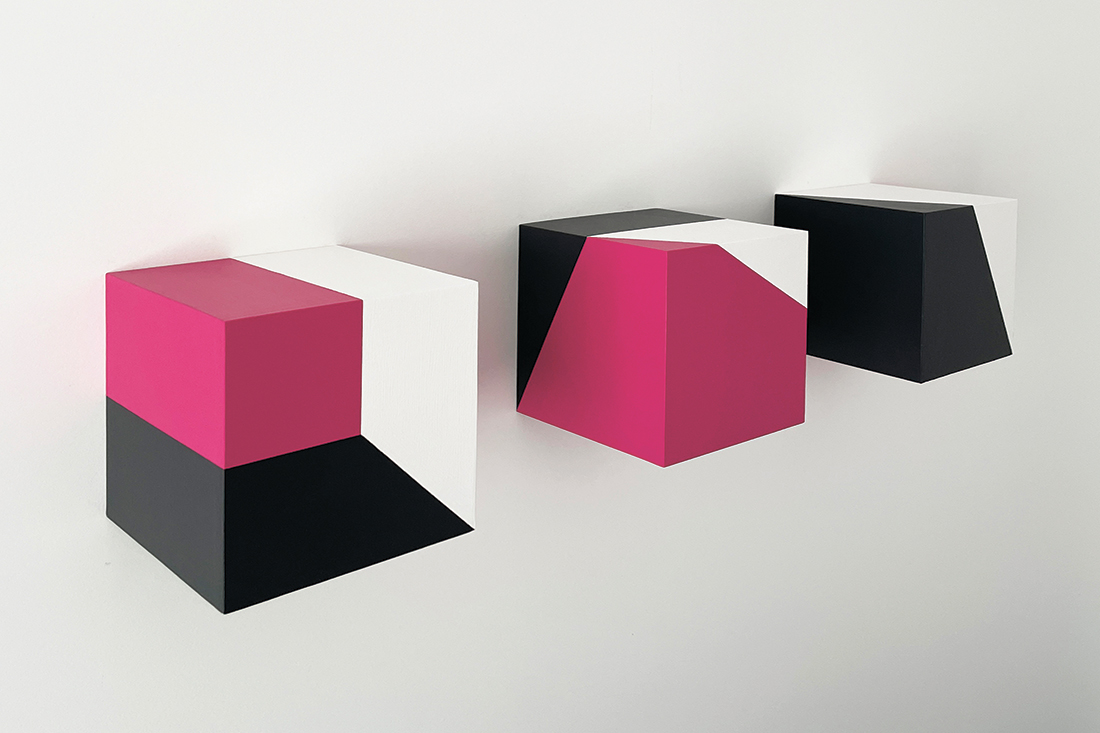
Precision Painting: Petalia Humphreys Inhabit
Michael Brennan discovers the art of deception and depth with Noosa Regional Gallery’s latest exhibition.
It’s really difficult to make something look easy or simple in painting. A flat expanse of colour or a straight line without bleed demands as much attention and patience as capturing something’s likeness.
We forgive imperfections and blemishes in much painting as a sign of expression, or evidence of the artist’s hand. But Petalia Humphreys’ end goal isn’t to evoke an interpersonal response. Instead, in the foreground, is a cerebral game. And I use the word ‘foreground’ quite deliberately here, because spatially, in Humphreys’ paintings, it can be kind of difficult to locate exactly where the foreground is.
It’s also not easy to talk about Humphreys’ work in the usual way we talk and think about painting.
Her surface is flat, but it’s not two-dimensional – except when it is, but then she employs trickery to convince you it’s not.
Working on hand-built timber cubes, Humphreys details her surface with simple yet exacting geometric designs, altering our reading of their three-dimensional form depending on our angle of approach.
It’s difficult to explain so it’s perhaps best to take a look at the pictures.
Imagine two adjacent surfaces of a cube – joined at a right angle – painted with three angular shards of pink, white and grey. Viewed from above, the seam between two of these colours makes a beeline across one flat plane before taking a ninety degree turn and seemingly shooting off on another angle.
But lower your eyes a little and that same line becomes a single straight trajectory. And before you know it, the white area comes into play, assuming the role of negative space and slipping behind what is now a pink cube… or is it a wall in a room with a black floor – again, look at the pictures for a better understanding.
The illusion becomes even more engrossing when the paintwork extends off the sculptural form and across the gallery walls, referencing and echoing the architecture of the space it appears in.
It’s a Hard Edge Abstraction version of a snake eating its own tail and enough to set your perception into an existentialist spin.
People like pictures that look like things. I get it. There’s awe and wonder in the ability to trick our eye into believing some pigment pushed around a canvas can be a stand-in for a landscape, a bowl of fruit or someone’s face.
But don’t be too quick to walk by something because it appears simplistic or easy, because in Humphreys’ case, it invariably isn’t. Her games with shadows, forms and perspective will reward anyone who takes the time to take a closer look.
What’s On
Petalia Humphreys; Inhabit
Noosa Regional Gallery, 16 July to 15 September



